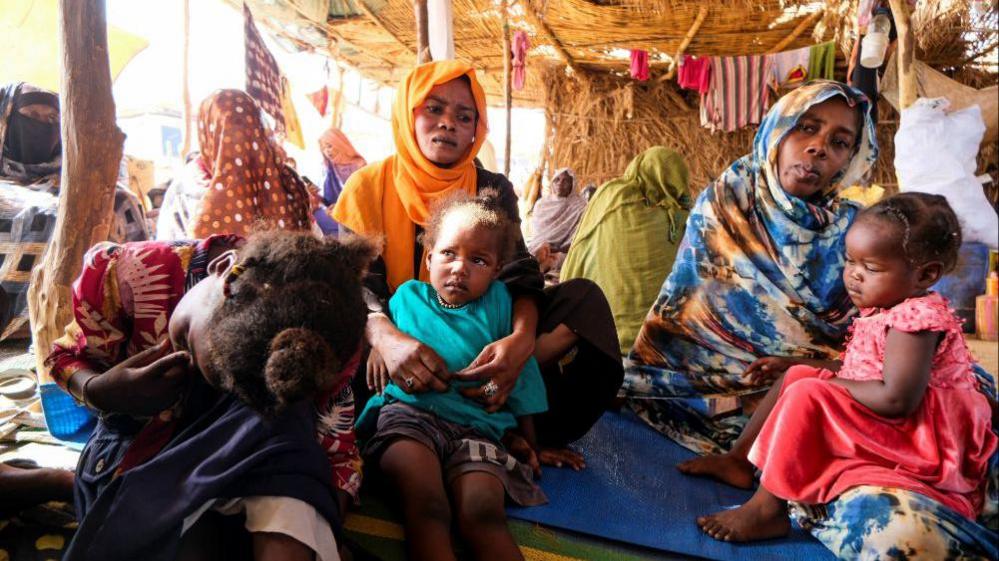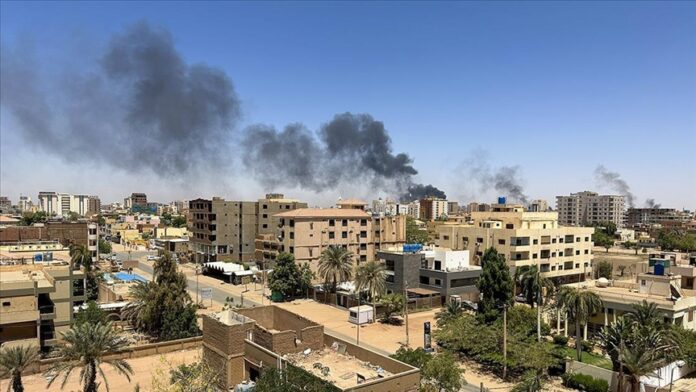El-Fasher Shelter:
Dozens of civilians, including women and children, have been killed in a devastating drone strike targeting a displacement shelter in the war-torn city of El-Fasher, northern Darfur. Local activists and medical sources report that the assault has intensified the already dire humanitarian crisis gripping the region.
According to the El-Fasher Resistance Committee, a coalition of residents and civil activists, the Rapid Support Forces (RSF) launched two drone strikes and fired eight artillery shells at Dar al-Arqam Camp, a displacement shelter located within a local university. The group described the incident as a deliberate attack on unarmed civilians.
“Children, women, and the elderly were killed in cold blood. Many were burned beyond recognition,” the committee said in a statement shared online.
Panic and Devastation in the Wake of the Attack

Eyewitnesses recounted horrific scenes of chaos and destruction following the strike. Rescue teams and volunteers rushed to the site, pulling bodies from the rubble amid thick smoke and cries for help.
The Sudan Doctors Network confirmed that at least 57 people were killed, including 17 children, and 17 others were injured. Activists on the ground fear the actual death toll could exceed 60 fatalities as many victims remain trapped beneath debris.
Hospitals in El-Fasher, already crippled by months of siege, were quickly overwhelmed. Medical staff treated the wounded on the floors and in corridors due to a severe shortage of supplies and space.
El-Fasher Under Siege for 17 Months
The RSF has besieged El-Fasher for more than 17 months, in an effort to capture the last major stronghold of the Sudanese Armed Forces (SAF) in the Darfur region. The ongoing blockade has cut off essential food, water, and medical supplies, leaving hundreds of thousands of residents stranded and starving.
Local resistance groups say the situation has “gone beyond disaster and genocide,” describing the relentless bombardments as a campaign of terror against civilians.
Sudan’s War Enters a Deadlier Phase

The conflict in Sudan erupted in 2023, when tensions between General Abdel Fattah al-Burhan, head of the Sudanese army, and General Mohamed Hamdan Dagalo (Hemedti), leader of the RSF, exploded into open warfare.
The brutal power struggle has since plunged the country into chaos, creating one of the world’s worst humanitarian crises. The army now controls most of northern and eastern Sudan, while the RSF dominates much of Darfur and neighboring Kordofan.
If El-Fasher falls, analysts warn that the RSF could gain full control of Darfur, enabling them to establish a rival government in western Sudan.
UN Warns of Possible War Crimes
The United Nations estimates that around 250,000 civilians remain trapped inside El-Fasher under siege conditions. Satellite imagery and field reports suggest the RSF has constructed an earthen wall around the city, tightening its control and preventing civilians from fleeing.
UN officials have condemned the latest attacks as potential war crimes, citing repeated strikes on civilian infrastructure and hospitals.
Two days before the drone strike, 13 people were killed when RSF forces shelled one of the city’s last functioning hospitals.
“I am appalled by the RSF’s endless and wanton disregard for civilian life,” said Volker Türk, the UN High Commissioner for Human Rights, in a statement on Friday.
Mounting Civilian Deaths and Mass Displacement
Across Sudan, more than 150,000 people have been killed, and 12 million have fled their homes since the conflict began. Humanitarian agencies warn that famine, disease, and lack of medical care could cause even more deaths if the violence continues unchecked.
El-Fasher, once a bustling city and cultural hub of Darfur, has become a symbol of Sudan’s collapse — a place where hospitals are bombed, aid convoys blocked, and families trapped between warring sides.
Global Calls for Ceasefire and Humanitarian Access
International organizations and human rights groups are urging both the RSF and the Sudanese army to agree to an immediate ceasefire and allow unrestricted access for humanitarian aid. Despite repeated diplomatic efforts, peace talks have failed to produce meaningful results.
As the fighting escalates, residents of El-Fasher continue to endure unimaginable suffering. For many, survival now depends on international intervention to break the siege and deliver much-needed aid before the city falls completely into ruin.

